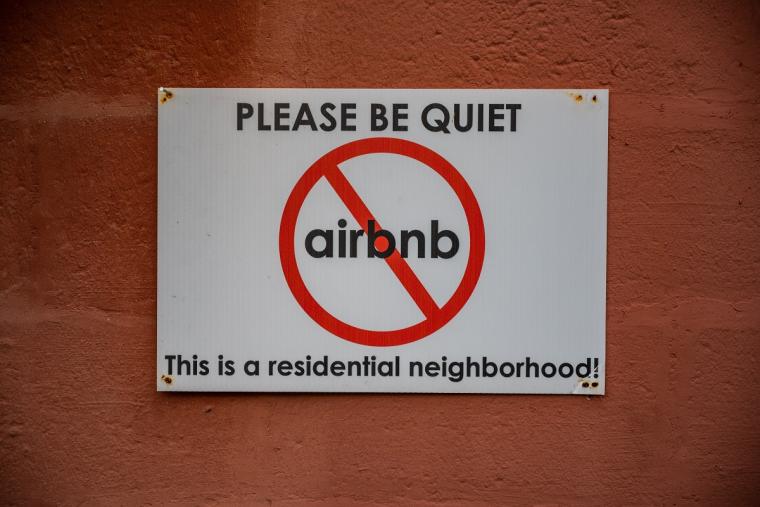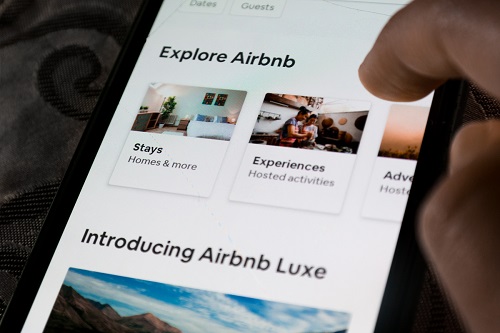
It’s not like Airbnb wants to be a party-pooper. It just wants its guests to be better neighbors, and to avoid any “Animal House” scenarios. Can it affect tournament travelers who want to have a group house-share?
The answer is a definite maybe. It’s not an uncommon practice for a renter to invite groups of friends over; in this case, it could be viewed as not much different from the way a sponsor of a sports event might host an event in a hotel, restaurant or other venue. It’s when parties start – and when they get volatile – those problems arise.

The home-sharing platform has noted it is instituting “strict anti-party measures” for Memorial Day weekend for the first time and will reapply the same approach for July 4th weekend — something it did last year and said was effective.
According to CNN, which carried this story, two teens were killed and several other people injured at a large party held last month at an Airbnb-rented property in Pittsburgh. Many of the guests at that party were minors. Airbnb, which said it banned the person who booked the property, also told CNN parties aren’t allowed, per its rental agreements, and the event was “thrown without the knowledge or consent of the host.”
But the problem of house parties stretches back further.
In 2019, Airbnb CEO Brian Chesky announced a ban on “party houses” after five people were shot and killed at a Halloween party at an Airbnb rental house in Orinda, California. Something noted at that time was that the company was doubling down on its efforts to combat unauthorized parties and to jettison those who practiced poor host or guest conduct.
In addition, Airbnb instituted a 24/7 support hotline to field complaints. It also placed restriction on allowing any users under the age of 25 to book Airbnbs in their area if they lacked a history of positive reviews.
Last year, the measure seemed to work over the July 4 holiday. Airbnb told reporters at CNN that more than 126,000 guests without histories of positive reviews were unable to book certain reservations during July 4 weekend last year.
“The 4th of July weekend in 2021 was quiet and we saw a substantial decrease in reports of disruptive and unauthorized parties,” the company said.
According to The Points Guy, the company also has rolled out more manual screenings of what are known as ‘high-risk reservations.’ Airbnb will use risk detection protocols that look at the duration of the stay, the size of the listing and other factors that might suggest the property could be used for a house party.
Timing of rentals and property locations could also be factors that lead to stronger screening at different points during the year. Examples might be homes at beachfront destinations during spring break week or directly after high school graduation.
However, this raises a new concern: Many tournaments are held over spring break and throughout the spring and summer. What about groups of athletes, such as college club team members, who travel to a tournament and who rent a large house together in order to save on expenses – but who don’t have any intention of hosting parties? What about a group of youth sports parents who want to share a larger property in order to cut down on meal and hotel expenses? What about a sports event sponsor who wants to rent a house to host an off-premises dinner or a cocktail party for guests who will not cause trouble? Will these, and other legitimate guests, be turned away as a high risk, or perhaps have to face unexpected screening to prove they’re not planning to host events?
It’s certainly possible; Airbnb has not noted exactly how they intend to keep the problem of party houses from recurring, nor from making registering for a larger property too onerous. Additionally, Airbnb hosts find there are groups they like to host – meaning those who cause no problems; those are generally the guests who are welcomed back.
With more cities and event owners gravitating toward long-term contracts, including those in resort areas, and with Airbnb’s more stringent regulations, it’s possible the problem of party houses will decrease – although it’s likely troublemakers will always be looking for other platforms and rental companies to find host properties for their revelries.

